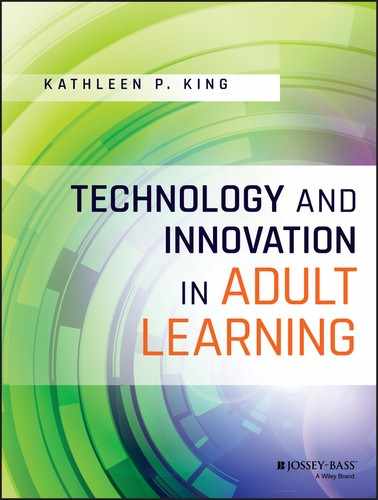Book Description
A comprehensive exploration of technology's role in adult learningTechnology and Innovation in Adult Learning introduces educators and students to the intersection of adult learning and the growing technological revolution. Written by an internationally recognized expert in the field, this book explores the theory, research, and practice driving innovation in both adult learning and learning technology, and illuminates a powerful approach to recognize and leverage these opportunities. Building on current trends and research in technology and its use, each chapter illustrates the need, opportunities, and examples of current and future technologies that scaffold adult learning, and provides comprehensive coverage of both current and emerging challenges.
Many adult learning faculty, practitioners, and students realize that technology presents a growing and ever-present set of issues, yet few feel confident in identifying the opportunities that arise with each step forward. This book clarifies the interplay between adult learning and learning technology, and characterizes the cyclic exchange of information and opportunities that link these fields now and in the future.
- Understand the critical issues currently affecting adult learning
- Learn how technology is presenting both opportunities and challenges for the teaching and learning of adults in different contexts
- Examine recent research on learning technology for adult learners
- Discover how technological innovation can be applied now and how it will continue to shape the future of learning
Adult learning is on the rise, and there is no mistaking technology's role; whether they're learning with or about technology, today's adult learners come with unique sets of needs and skills that demand specialized approaches. Traditional pedagogical techniques don't transfer directly, and learning technology requires its own unique approach to development and use. Technology and Innovation in Adult Learning equips practitioners to further adult learning and shape the future of the field, while providing a rich perspective for classroom inquiry and research.
